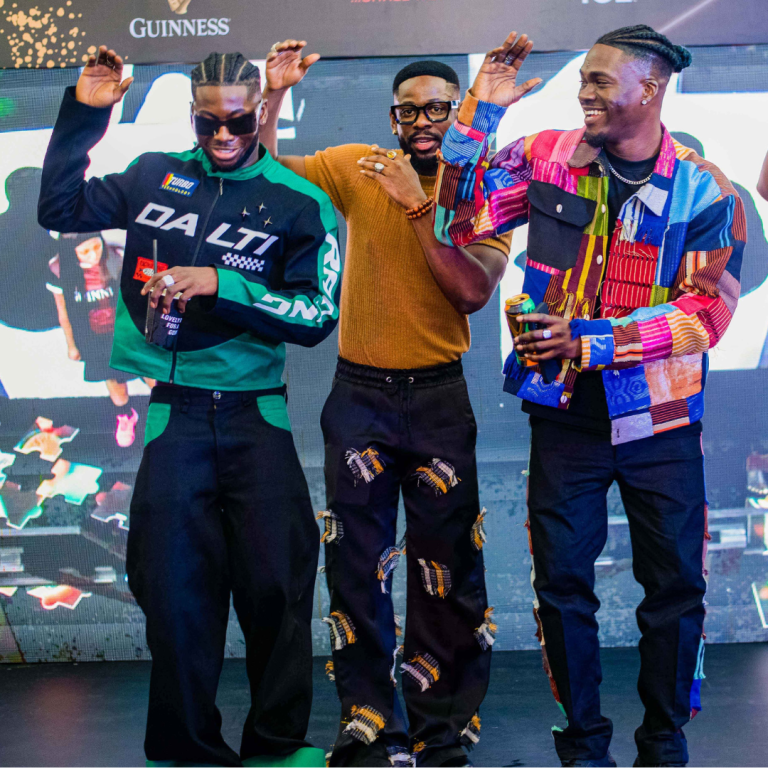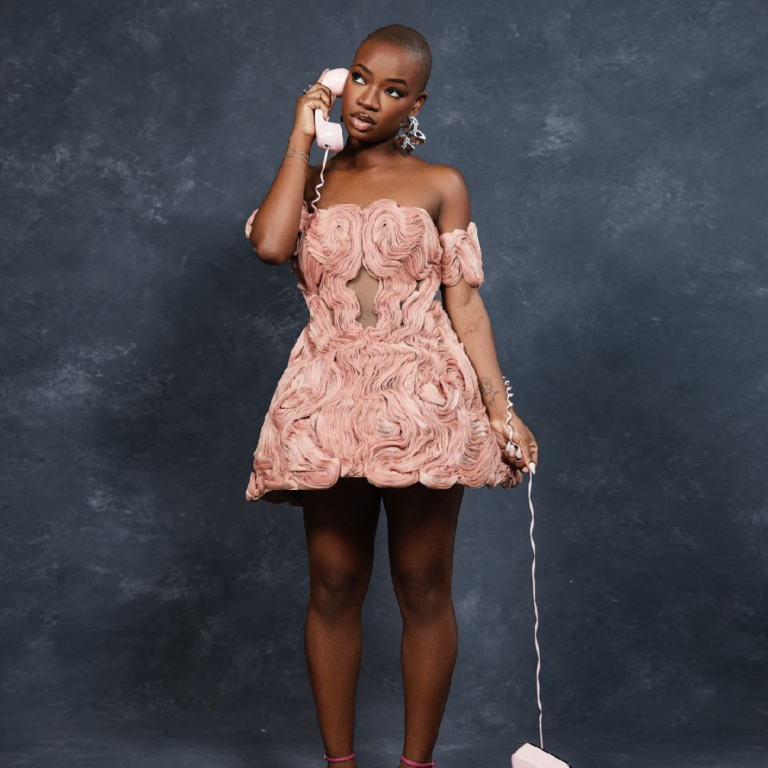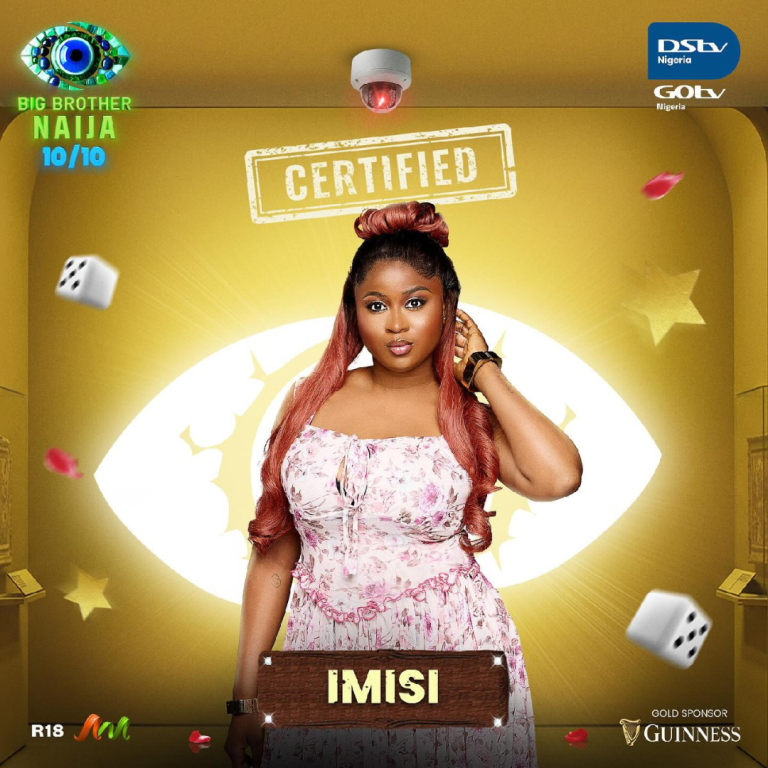In 2010, a young writer, Minna Salami started a blog. She called it MsAfropolitan and it became her springboard from which she waged her war against the patriarchy.
Her seminal essay on the subject, “Oyalogy – a poetic approach to African feminism,” traces how African women have leaned into feminism for years to protect their communities and themselves.
In 2020, she published her first book, Sensuous Knowledge: A Black Feminist Approach for Everyone, a collection of essays on black manifestations of feminism, from African myths to the radical women’s movements. She is back with a new book, asking the very provocative question, Can Feminism be African?: A Most Paradoxical Question and a Vision of African Political Philosophy.
In this week’s #MadeinNigeria, Minna Salami tries to offer some answers to the question of African feminism.
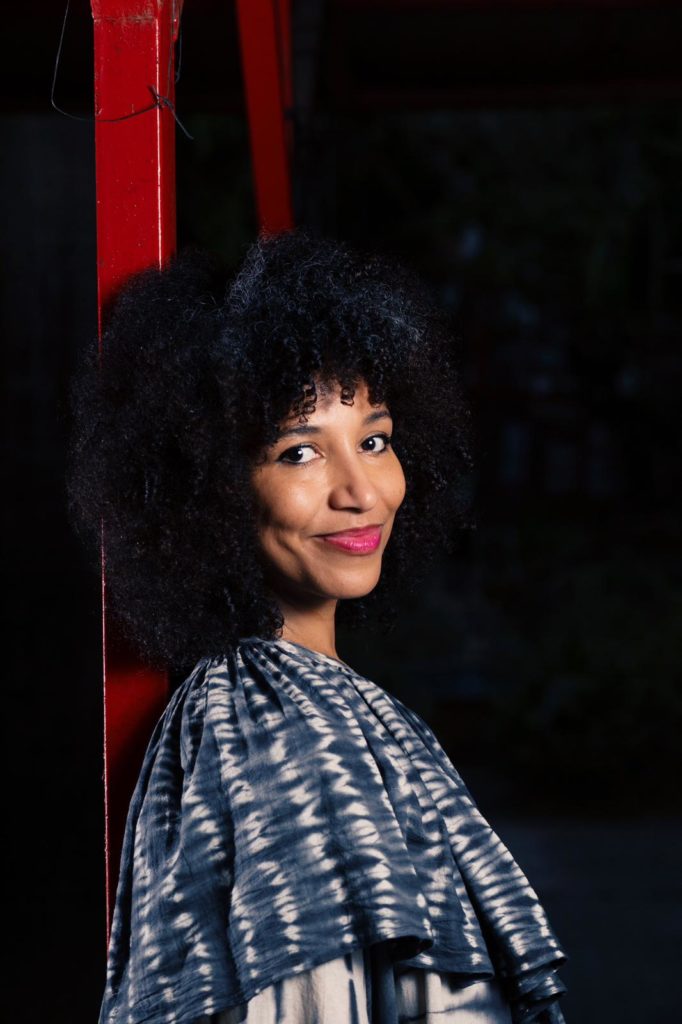
This interview has been edited for clarity and length.
When was your first encounter with the word feminism?
I first encountered the term when I was at university during a lecture. I was doing my bachelor’s degree in my early twenties in Sweden. The lecture was about gender in media, given by a white male Swedish professor. He showed us a clip and explained the concept of the male gaze, then discussed how feminists had written about it. The only term I kept hearing in his explanation was feminism, and I felt a strong resonance. In that moment, I realized, “Oh, that’s what I am. That’s me.” It was a standout moment for me encountering the term.
Are you one of those feminist who were feminist before they knew the word?
Yes, I’m sure I was born a feminist. My very first memory in life is a feminist one. I was probably about 4 years old, living in Lagos, where I grew up. There was something that girls were not allowed to do that boys were allowed to do, or vice versa. I just remember feeling so angry and thinking, “What kind of nonsense is this? This is so unjust.” That’s my earliest memory, and it’s about my feminist spirit.
What type of child were you growing up at school?
I was definitely more of a studious type of student, but at the same time, I was also really wild in a weird way. During breaks, I would get into trouble. I like to think that if I had lived in Europe as a child, I would have been part of a goth movement. I probably would have had my three or four best friends. But because I grew up in Nigeria, where those kinds of scenes didn’t exist, my best friends and I were all geeks. We were really into reading novels, often ones meant for adults. During breaks, we’d read literature with erotic elements, things we weren’t supposed to be reading. I remember having to wash my mouth with soap several times because of it.
How did you start your famous blog, Ms Afropolitan?
It happened quite organically. I had already been blogging for a few years. I first discovered blogs around 2006 and immediately thought, “I’m setting up a blog.” This was back on MySpace, so you can tell how old I am. I’ve always loved writing, and self-expression has been a big theme in my life. I didn’t initially set out to write about feminism, but since I was a feminist, it ended up being a central theme. I noticed people were really interested in those conversations, so MsAfropolitan just happened. I decided to focus on that theme and set up the blog in 2010.
In your writing, you make a lot of historical references. How deliberate is this?
With all my writing, particularly about feminism, my goal is to advocate for the feminist cause. My motivation is always, “How can I get people to sign up?” I’m not a preacher, and I want people to arrive at their own conclusions, at their own pace. That’s what drives me. It’s not that I’m trying to be strategic, like thinking, “If I write about what happened in Liberia, then it will be relatable.” It’s more of an inner sense of, “This is a topic I know people might be interested in or have heard about,” or I connect it with the theory or concept I want to present.
I think part of the success I’ve had is that I’m able to translate jargon or abstract ideas into a more accessible, approachable style.
One of your seminal essays is on Oyalogy. Where did that come from?
Oyalogy is a concept I created, based on my fondness and curiosity about the Yoruba goddess Oya. A funny side story is that for the longest time, I was convinced that Oya was my Orisha. I looked up the colours that people wear when they an are Oya devotee and studied the associated rituals. I read all I could, interviewed people, and engaged deeply with the topic. Then I learned that Oya is not my Orisha, which was initially disappointing.
However, I kept my connection with Oya because she is considered the feminist Orisha—at least, among the female Orishas, she is the most obviously feminist one, as she is all about social transformation. I had been living with Oya, in a sense, through my research, practice, and curiosity. When I sat down to write, Oya felt like a strong muse. The idea behind Oyalogy was to build a bridge between feminist thinking, a sense of historical curiosity about ancient Africa, and a spiritual sensibility, which I have, and which many of us in our communities also share.
We see references to Oya and Osun, especially in American pop culture. Does this worry you?
I feel very positively about that. I think it’s wonderful and important. African Americans absolutely have every right to these stories. In recent years, there’s been a growing sense of division between Africans and African Americans. To some extent, we can be a bit more proprietary about the indigenous cultures, and I think there are valid reasons for that. One reason is the commercialization of these cultures, something that someone like Beyoncé inevitably contributes to, being one of the wealthiest and most commercially successful pop stars. I understand that there could be concerns around that, and yes, narratives can get distorted, which is a real risk.
However, I also want to remind people—particularly us, from the continent—that in so many ways, we actually have African Americans to thank for reminding us about our rich cultural legacies. When I started writing about the Orisha and Yoruba traditions in the early 2000s, there were very few people on the continent, particularly in Nigeria, discussing it in a contemporary sense. Of course, there were professors and indigenous practitioners, but not many young people were exploring that world. Wole Soyinka was my inspiration—he’s an older figure—but there weren’t many others. The information I found was predominantly from African Americans who had travelled to Nigeria, Brazil, Cuba, and other places.
How did you get your first book deal?
Through my blog. I had been writing Ms Afropolitan for many years before I got my first book deal which was for Sensuous Knowledge. I was one of those maybe annoyingly lucky people in that I was approached by an agent. I say “annoyingly” because for most writers, you have to pursue and chase agents relentlessly. This is why I always say it’s so important to get your writing out there. The only reason an agent approached me was because I had a successful blog. It wasn’t because I was a better writer than others. They saw the traction my blog had and figured there might be interest in a book from me as well.
It took only about two months, and before I knew it, I had a book deal.
What advice will you give to young writers looking for publishers?
The first thing I would advise is to really believe in yourself and know that you have something very unique to offer. As Nigerians, we come from such a rich culture, despite the challenges and complexities of our country. One of the things I consider a superpower for me as a writer is simply being Nigerian and having lived in Nigeria. It gives me the ability to see the world through multiple lenses—colonized, traditional, tribal—all of which are complex and textured. This perspective is a gift, especially for writing. So, first and foremost, be confident in that.
Once you have that confidence, it’s important to feel entitled to success and recognition. When approaching international platforms—whether blogs, newspapers, agents, or others—approach with the mindset that they want to hear from you because you have important things to say. That sense of entitlement isn’t arrogance; it’s a belief in the value of your voice.
Finally, broaden your approach and thinking. Securing an agent or publisher can be challenging no matter where you are in the world, so focus on making your writing visible. Reach out to blogs, contact platforms, or even ask to write for them. Podcasts are another great avenue—podcasters are often looking for guests, so don’t hesitate to pitch your story to them. The key is to get your work out there and make it as visible as possible.
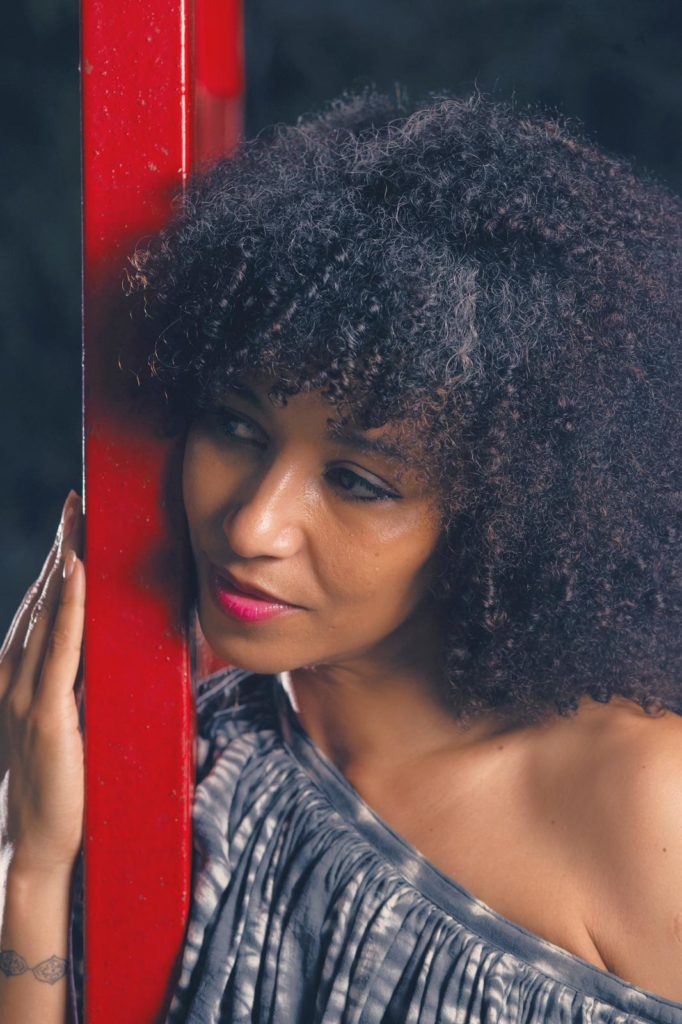
The relationship between feminists and communities is very fraught. In one end, many women lean into them for support and then said communities are also primal enforcers of anti-women oppression. How are you thinking about this?
Community is a complex and often romanticized concept, but when viewed through the lens of feminism, it reveals inherent tensions. Communities are microcosms of society, and as with society at large, they are often patriarchal in nature. This means that while community can offer support and connection, it can also perpetuate harmful norms.
In my writing, I emphasize that community in itself is not inherently positive. For example, alt-right incels and neo-Nazis are also members of communities. What makes a community valuable or beneficial is the intentional work done to ensure it fosters safety, support, and equity for its members—particularly for women.
We have been seeing a backlash against women’s advancement in recent months. Where is this coming from?
Conservatism is undoubtedly gaining traction, though it often operates beneath the surface. There’s a noticeable trend of conflating this conservatism with a sense of indigenous, nativist, and nationalist pride, which makes it seem more palatable or even desirable. This blending of cultural pride with traditionalist values creates a veneer of authenticity that masks its more regressive undertones.
We are living in an era of cultural renaissance, fueled by global recognition of African culture through mediums like Black Panther, Afrobeats, and increased discourse around decolonization. These movements have ignited a rightful sense of pride in African heritage. However, backlash movements have cleverly intertwined this pride with conservative ideologies, positioning them as if they are one and the same.
This conflation is particularly frustrating because it distorts the historical and cultural record. For instance, prudishness and rigid traditionalist values being presented as “authentic” to African culture ignore the fact that many precolonial societies were far more fluid and open, with practices and norms that defy modern conservative interpretations. You can still visit some parts of the continent today and see women embracing traditional ways of life that include bare-chested dress, something far removed from the prudery now being retrofitted into cultural narratives.
This negative conflation is often wielded as a weapon against feminism and other progressive movements. It’s a deliberate strategy to frame these movements as foreign or incompatible with African values, when in fact, much of what is labelled as “traditional” today is deeply influenced by colonial and missionary impositions.
You talk a bit about this in your new book Can Feminism Be African? Please say more.
In the West, populism is often tied to anti-left ideologies or figures like Trump, but in Africa, it manifests in what I term “Populist Anti-Western Nativism” (PAWN)—a concept that encapsulates the rejection of anything perceived as Western. This form of populism isn’t just about political or economic concerns; it’s deeply cultural, with profound implications for social progress.
The driving force of PAWN is a reductive binary: whatever is Western is inherently bad, evil, and “un-African.” This perspective is wielded to oppose progressive ideals like democracy, human rights, LGBTQ+ rights, and, crucially, feminism. These concepts are dismissed as foreign impositions that threaten the supposed purity of African traditions and values.
While it’s important to acknowledge that Western institutions have at times co-opted and manipulated these ideals for their own agendas, the populist critique weaponizes this reality to promote a regressive agenda. By framing progressivism as an external threat, PAWN creates a false dichotomy that undermines nuanced conversations about African identity and progress.
The backlash against feminism is particularly emblematic of this manipulation. Feminism is labelled as a Western import, even though many precolonial African societies embraced principles of gender equity and collective leadership that resonate with feminist ideals. This selective reading of history erases the complexity and richness of African traditions, replacing them with a monolithic and often colonial-influenced narrative.
PAWN exploits legitimate critiques of Western influence but twists them into tools of oppression rather than liberation.
What are the implications of PAWN?
The cultural implications are dire and urgently demand attention. At its core, this ideology fosters a dangerous regression that threatens not only progress on gender equality and human rights but also the broader evolution of societies toward wisdom, development, and conscientiousness.
By framing progressive ideals as antithetical to African identity, PAWN constructs a false narrative that equates conservatism with cultural authenticity. This distortion undermines genuine emancipation by entrenching values that stifle innovation, inclusivity, and equity. The result is a cultural stagnation that impedes the capacity of societies to adapt, grow, and thrive in an increasingly interconnected world.
I find the pop feminist discourse on social media in the country to be stuck in a gender war as opposed to actual female advancement. How do you see it?
The online discourse, particularly on platforms like X, has amplified the raw and often valid emotions tied to the ongoing gender power dynamics, especially within the realms of dating and relationships. It’s easy to understand why this space becomes a battleground—on one side, there’s the frustration of women confronting long-standing inequalities and injustices, and on the other, men grappling with the destabilization of the patriarchal narrative they’ve been taught to rely on.
However, this combative energy, while rooted in legitimate grievances, risks reducing the broader feminist agenda to a perpetual “battle of the sexes” focused primarily on personal dynamics. It’s as if these platforms have become the living room of a couple hashing out their issues in front of an audience, with the nuances of larger structural challenges lost in the din of personal grievances.
While the feminist mantra “the personal is political” reminds us of the importance of examining intimate relationships within the framework of power structures, the problem arises when these conversations become trapped within a narrow scope. The focus on dating dynamics, though significant, often eclipses broader feminist concerns such as economic equity, political representation, and societal reform. This limited framing risks alienating those who might engage more deeply with feminism’s multifaceted goals.
Ultimately, we need to steer these dialogues beyond the confines of online quarrels and acknowledge the wider contexts at play.
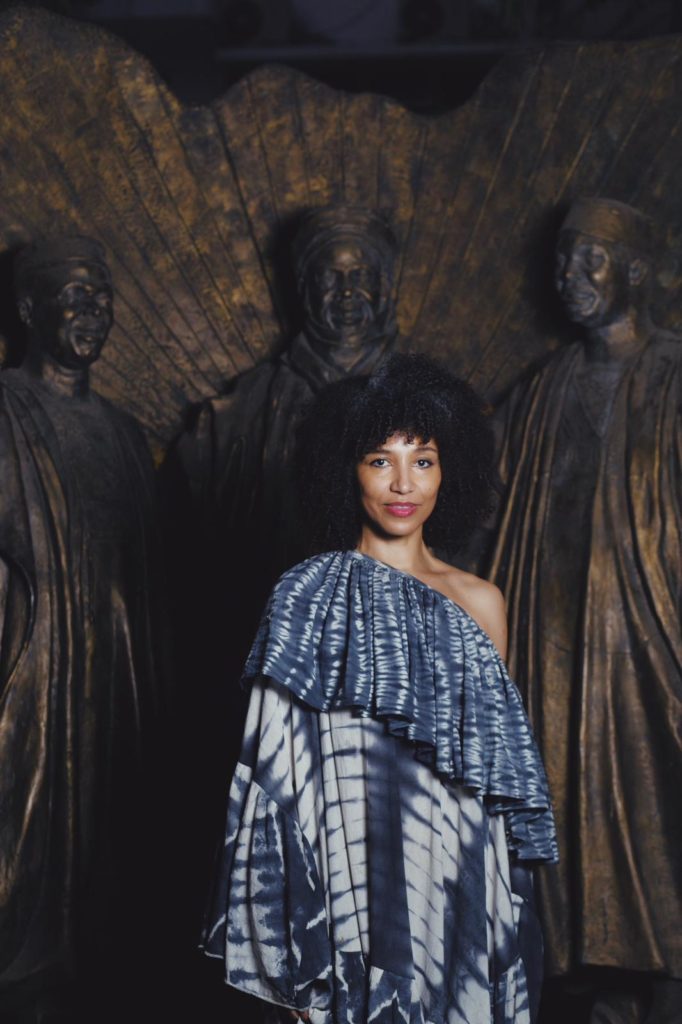
What do you hope readers take out of the new book, Can Feminism Be African?
The goal of this book is to ignite critical curiosity and foster a sense of agency and ownership in readers. By addressing interconnected topics such as feminism, populism, history, and politics, the book invites readers to actively engage with these ideas and see their relevance to their own lives.
Central to the book’s message is the concept of ownership—reclaiming one’s narrative, identity, and role within society. Patriarchy, colonization, and other oppressive systems often strip people of their sense of autonomy, leaving them passive in shaping their futures. This book seeks to challenge that passivity, encouraging readers to assert their rights and responsibilities to create a society that aligns with their values and aspirations.


